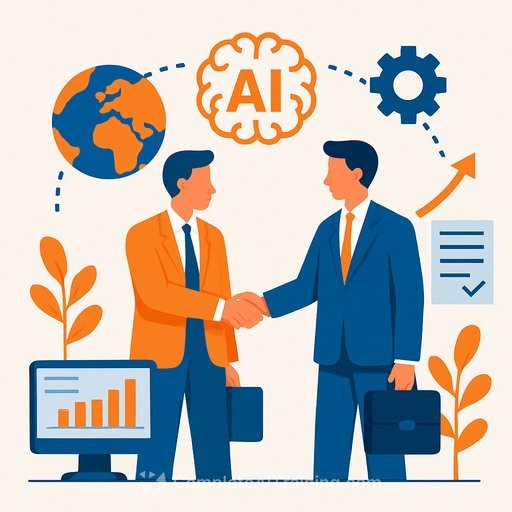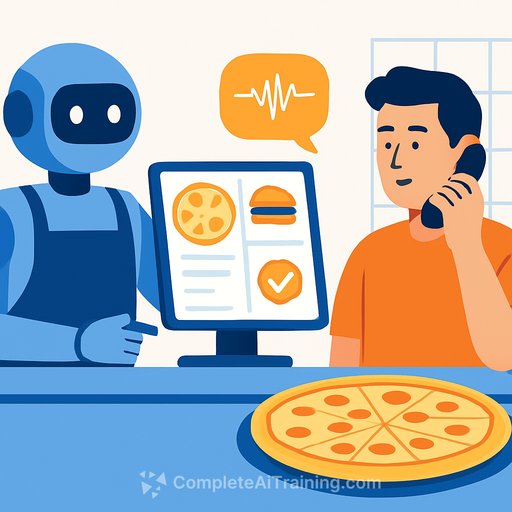Capgemini closes WNS acquisition: what Operations leaders need to know
Capgemini has completed its acquisition of WNS, creating a combined Intelligent Operations business focused on agentic AI and end-to-end process transformation. The deal closed on October 17, 2025, with WNS consolidated into Capgemini's financials as of that date.
Transaction terms: Capgemini acquired WNS for $76.50 per share in cash, valuing the deal at $3.3 billion excluding net financial debt. On September 18, 2025, Capgemini priced €4.0 billion in bonds to finance the transaction, refinance debt, and for general corporate purposes.
Why this matters for Operations
- End-to-end redesign becomes the default: Expect integrated offerings that tie consulting, data, AI, and managed services into one accountable model.
- Agentic AI moves from pilots to production: Autonomous agents will execute multi-step work across finance, procurement, customer operations, and supply chain with human-in-the-loop controls.
- Outcome contracting accelerates: More commercial models tied to business KPIs (DPO, cash conversion, CX, cost-to-serve), not just effort or FTEs.
- Platform rationalization: WNS domain platforms plus Capgemini's AI and data stack will push standardized, reusable components over bespoke builds.
Where you'll see impact first
- Finance: Order-to-cash dispute resolution, cash application, intercompany, close/reconciliation, predictive cash flow.
- Procurement: Autonomous triage of requests, vendor onboarding, contract analytics, risk heatmaps, and guided buys.
- Customer operations: Smart case routing, intent recognition, next-best-action, knowledge retrieval, and proactive outreach.
- Insurance and claims: First notice of loss intake, document extraction, fraud flags, and straight-through processing.
- Supply chain: Demand sensing, inventory balancing, ATP commits, and exception handling with audit trails.
Practical next steps for Ops leaders
- Map your top 10 processes by volume and impact. Score each on data readiness, exception rates, and change risk. Prioritize three for pilot-to-scale.
- Build a one-page business case per process: baseline KPIs, target metrics, control points, and payback period (12-18 months).
- Standardize data inputs: master data, taxonomies, and document templates. Poor inputs kill AI agent reliability.
- Set guardrails: access controls, audit logs, model versioning, and fallback paths for high-risk decisions.
- Plan for new roles: AI ops lead, prompt/process engineer, control owner. Train supervisors to manage exceptions, not tasks.
- Update vendor model: clarify IP ownership, data residency, SLA structure for agents, and remediation protocols.
Integration signals to watch
- Unified platform roadmap: which WNS platforms remain, which migrate, and how they integrate with Capgemini's data/AI stack.
- Pricing and SLAs: outcome-based terms, agent uptime/quality metrics, and transparent exception handling.
- Talent access: named expert pools by industry and function; co-innovation programs for priority clients.
- Migration playbooks: clear timelines for onboarding, cutover, and control testing to avoid value leakage.
What the leaders said
"Capgemini and WNS share a common vision of the potential of agentic AI to transform our clients' business operations. By combining Capgemini's global reach, strategy and transformation capabilities, technology and AI leadership with WNS's industry expertise and platforms, we're uniquely positioned to help our clients reinvent their business processes end-to-end and lead in their market. We can now move forward in building together a global leader in Intelligent Operations. I am delighted to welcome WNS' employees to the Group." - Aiman Ezzat, CEO of Capgemini
"Our teams are looking forward to beginning this next chapter, joining forces with Capgemini to create a global powerhouse and build something truly transformative in the era of generative and agentic AI. The next wave of transformation will be driven by intelligent, domain and industry-centric operations, delivering efficiency and agility through hyper-automation for superior business outcomes. Our shared values and culture will make for a seamless integration, enabling us to unlock exciting opportunities and long-term value for our clients, employees, partners, and communities." - Keshav R. Murugesh, CEO of WNS
Key deal facts
- Announcement of definitive agreement: July 7, 2025
- Closing and consolidation: October 17, 2025
- Consideration: $76.50 per WNS share; total ~$3.3B (excluding net financial debt)
- Financing: €4.0B bonds priced on September 18, 2025; bridge loan cancelled post-issuance
- Tickers: Capgemini (Euronext Paris: CAP), WNS (NYSE: WNS)
How to de-risk adoption
- Start with low-regret use cases: high-volume, rule-based, document-heavy flows with measurable outcomes.
- Pilot with shadow mode: run agents in parallel for 4-6 weeks to benchmark accuracy, latency, and exception rates.
- Codify controls: define thresholds for auto-approve/auto-reject, human review criteria, and escalation paths.
- Track four core KPIs: cycle time, right-first-time, cost-to-serve, and employee effort hours saved.
About Capgemini
Capgemini is a global business and technology transformation partner with 350,000 people in 50+ countries, delivering end-to-end services from strategy and design to engineering. The Group reported 2024 revenues of €22.1 billion and brings market-leading capabilities in AI, generative AI, cloud, and data, combined with deep industry expertise and a strong partner ecosystem.
[1] WNS net financial debt was negligible as of March 31, 2025.
Build the skills your team needs
If you're planning an agentic AI rollout in Operations, upskill your team on automation, prompts, and AI control design. Explore role-based options here:
Your membership also unlocks:






